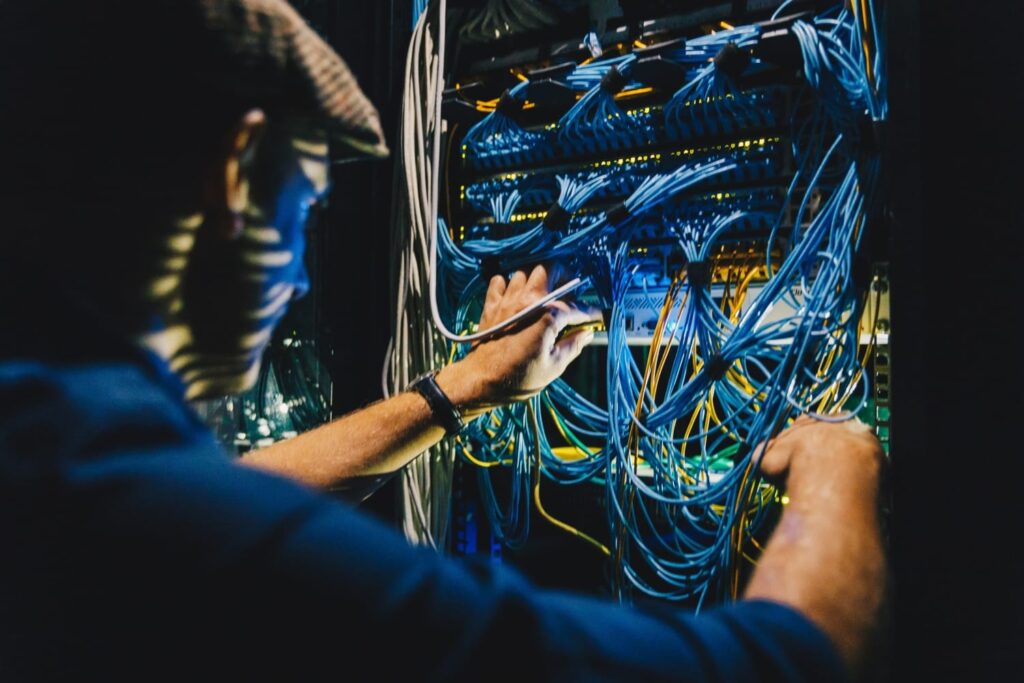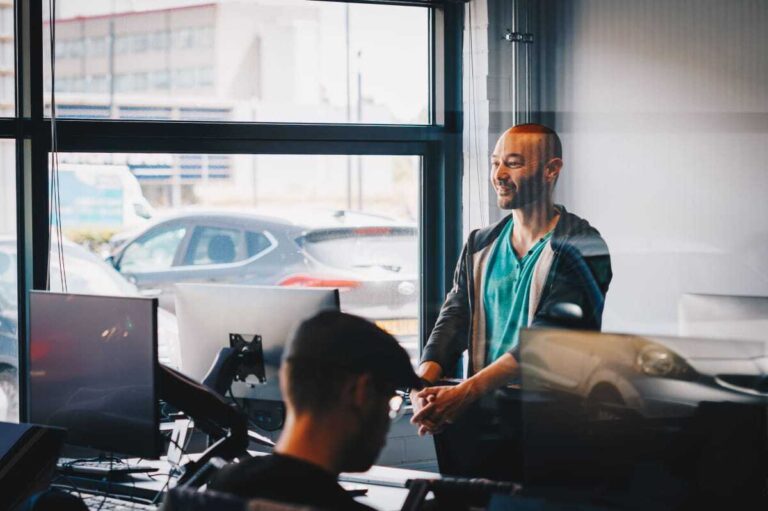
Do you enjoy reading Mark’s articles? Sign up for his founder’s newsletter now and stay up to date with his latest writings.
“AI will replace humans” has been a popular headline we have seen over the last few months. So should you fear for your job? The short answer is no. Let me explain why.
1. Most kinds of work won’t experience a productivity boom because of AI
I’ve already covered the history of productivity and the role AI can have, concluding it could lead us into an era of enormous productivity gains. And that is true… for about 20 to 25% of the workforce; about 1 billion people. For the other 75 to 80% of us, work has a big physical component to it. Nurses, carpenters, taxi drivers, teachers, and cashiers. Yes, this work will change over time by innovation coming from AI, digitalization, and robotization, but not at an unprecedented rate.
2. Work has always changed, and will continue to change when AI comes into play
It’s OK that work changes. We don’t have Bowling Alley Pinsetters, Switchboard Operators, and VCR repairmen anymore. We have Robots, Cloud Telephony systems, and Netflix. And we are still at a global record for the number of people that are part of the workforce.
About 80% of the jobs that existed 100 years ago don’t exist anymore, and the world is better because of it.
3. Big jumps in productivity have never resulted in less work
We have historically seen a huge boom in productivity, especially between 1870 and 1970. This did not lead to less work, however. And if we look at the data, we have more people in the workforce than we ever had before. We did start working fewer hours coming, which is a good thing. It might be time to continue that trend.
4. We are really bad at adjusting our behavior, and AI won’t change that
We have seen digitization promise a boost in productivity before, but we have seen linear growth in productivity since 1970. We have not seen exponential change. Part of that might be because we spend 2,5h a day on social media on a device that is built for distraction, not productivity. But this mostly shows how big the behavior component is in using digital technology.
Only 30% of the knowledge worker can type effectively using all 10 fingers. Loads of knowledge workers still don’t use ctrl+c and ctrl+v or the Apple equivalent. People are still creating documents on tools like Word that represent a typewriter, a tool that was supposed to be phased out in the 1970s. And we are still running companies, as we learned from Peter Drucker, which worked great in the factory, but it doesn’t translate well to knowledge work at all, something he even stated himself.
We are just really bad at learning to use new tools and skills if we aren’t required to do so. I don’t see AI changing that any time soon.

But what if you do want to become more productive in the digital age?
There are huge benefits to be gained by the knowledge workers
If you are a knowledge worker, there are huge benefits to be gained from learning how to use modern digital tools. I’m not exaggerating if I say these tools will make you 25 to 45% more productive! If you want to become more productive or you want your company to be more productive, actively investing in digital fitness is one of the best investments you can make.
Benefits gained should be shared
It’s good to realize that these productivity gains should not go to the shareholders alone. There is a quid pro quo here. If a company and its people invest their money and time and colleagues become more effective, the gains from these combined investments should be shared. A 4-day workweek might seem ambitious at first, but working a few hours less might be a great start if the total organization is willing to learn to adopt.
We need a reskilling workforce
It’s also good to realize that you and your company don’t work in isolation. If we know the work will change, reskilling the workforce together is a great way to maximize the societal gain from technological innovation. Making digital fitness part of reskilling is also something policymakers should focus on.
We need to build tools that augment AI, not replace
And if you develop the next generation of digital tools, it’s not just good that we learn people how to use them. It’s also good to look at the type of technology we develop. Yes, we can develop things that replace the human workforce, but we have seen this tends to drive down wages. Instead of replicating human skills, these tools could focus on augmenting human labor. This also reduces inequality and is a far nicer outcome for society and the people in it.
Now I hope I’m very wrong. I hope AI and other technical revolutions make our entire workforce way more productive. With the working population aging and becoming smaller because of that, it’s might be very necessary as well. Maybe that will be the thing that finally requires us to learn new tools and skills. We cool make “embrace chance” a subject at all schools right now. It might make change a verb we can embrace by default.


